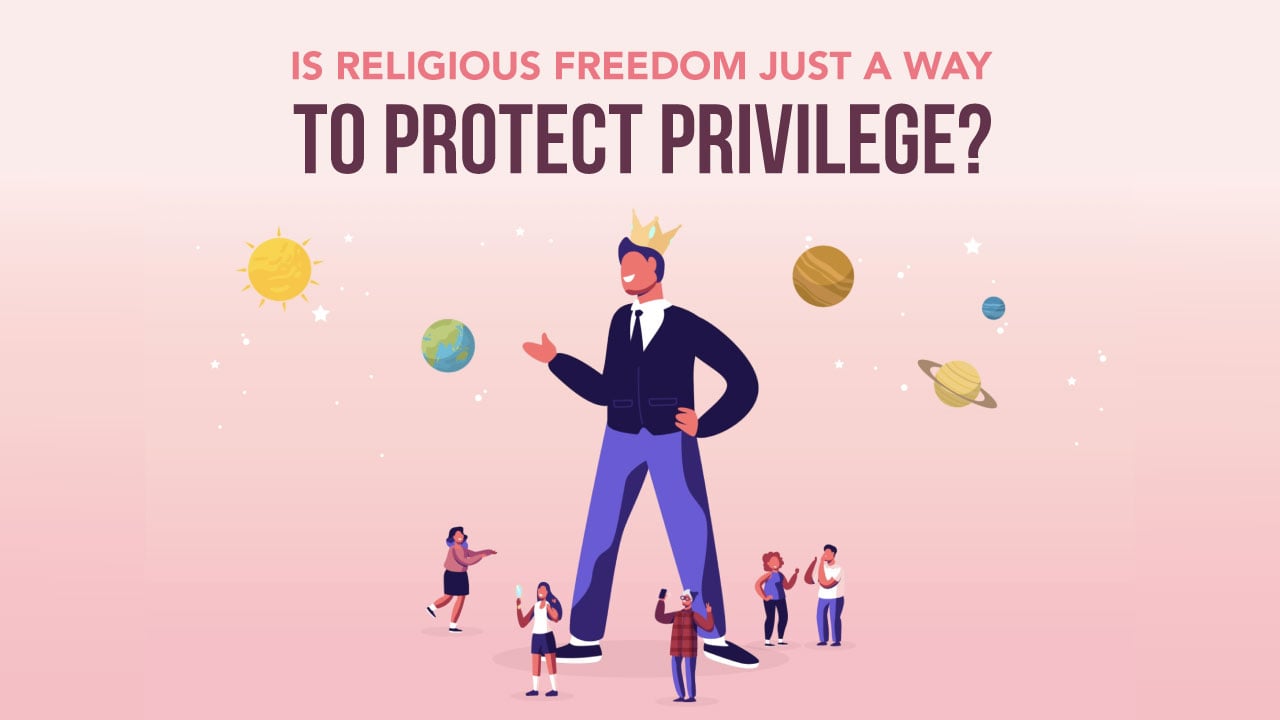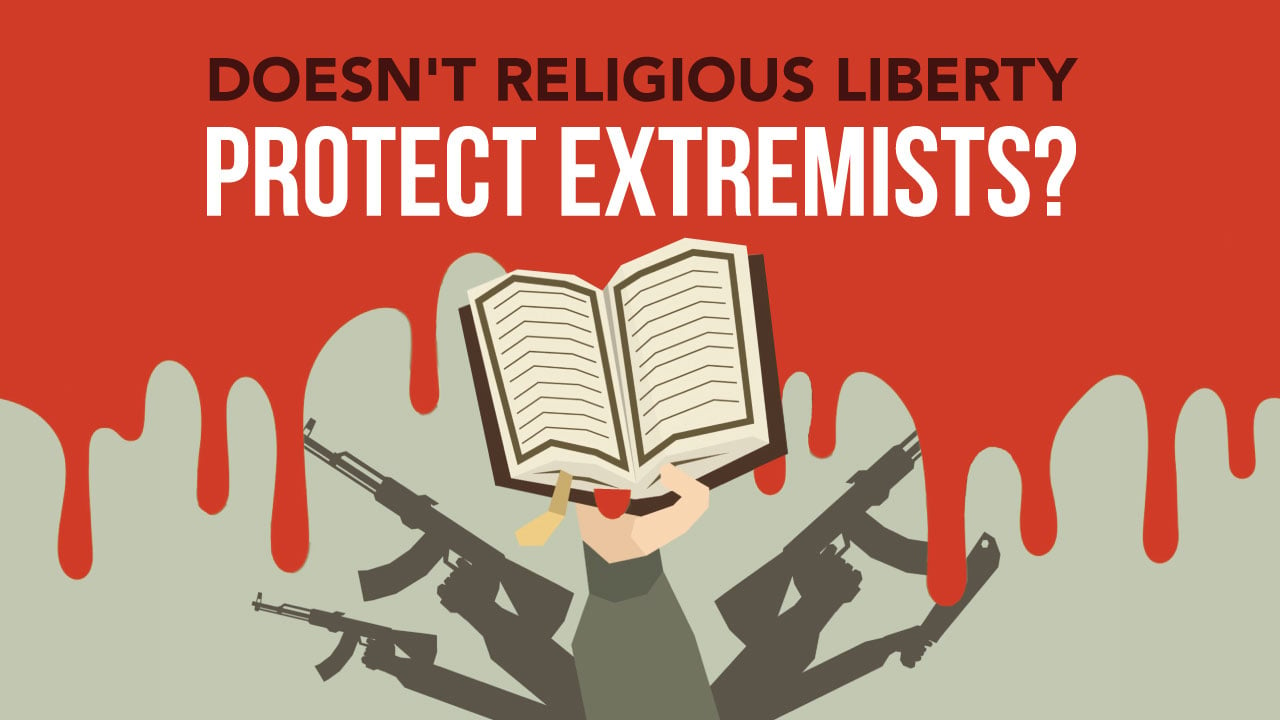3 min read
Is Religious Freedom an Excuse for Discrimination?
Brooke McIntire Apr 28, 2021 4:00:58 AM
You’re in a conversation and someone says, “Religious freedom is just an excuse for discrimination.”
What would you say?
Often, people assume that those who advocate for religious freedom really just want to be avoid the nondiscrimination laws that apply to everyone else. They assume that “religious freedom” is a way to make the rest of society live according to their rules. But is that true? Is religious freedom just an excuse to discriminate against others?
No. And here are three reasons why.
1. Religious freedom is about upholding rights, not taking them away.
2. People who care about religious freedom have strong beliefs about what’s best for society, it’s what drives them to be good neighbors.
3. Religious freedom is actually good for everyone, not just religious people, since societies with greater religious freedom are more tolerant of everyone’s beliefs.
You’re in a conversation and someone says, “Religious freedom is just an excuse for discrimination.” What would you say? Often, people assume that those who advocate for religious freedom really just want to be avoid the nondiscrimination laws that apply to everyone else. They assume that “religious freedom” is a way to make the rest of society live according to their rules. But is that true? Is religious freedom just an excuse to discriminate against others? No. And here are three reasons why. Number 1: Religious freedom is about upholding rights, not taking them away. Everybody should be allowed to live according to their deeply held religious beliefs without worrying about government coercion or retaliation. The writers of the First Amendment referred to this as the “free exercise of religion.” Religious freedom ensures that we all have the right to explore life’s deepest questions and to live out our religious convictions in the public square. It promises that the government cannot punish us for living out our convictions—even if someone else finds our religious beliefs disagreeable or uncomfortable. In a free society, people will disagree, often fiercely, about societal and moral issues—issues that religion takes very seriously. Our deeply held religious beliefs will inevitably cause someone offense. But disagreement isn’t discrimination. Number 2: People who care about religious freedom care deeply about what’s best for society; it’s what drives them to be good neighbors. Most proponents of religious freedom have thought deeply and carefully about what is best for human flourishing within their communities. They have convictions about how to care for other people—and they, just like everybody else, have the right to share those beliefs. For example, billions of Christians, Jews, Muslims, and other religious people believe that sex should be reserved for marriage, and that marriage is the union of one man and one woman. They believe this because it’s what their faith teaches them. They believe that reserving sex for marriage and defining marriage as the union of a man and a woman is best—for children, who thrive in homes with a married mom and dad; and for society as a whole, which is strongest when it is made up of strong families. Many religious people hold these beliefs, which stem from their deep convictions about God and His plan. Those convictions are also what lead these people of faith to lead the way in financial generosity, adoption, medical innovation, and care for the poor. Number 3: Religious freedom is actually good for everyone, not just religious people, since societies with greater religious freedom are more tolerant of everyone’s beliefs. According to Pew Research Center, the countries with the least religious freedom in 2018 were China, Iran, Russia, Indonesia, and Egypt (North Korea wasn’t part of the study). In Iran, women are not allowed to watch sports in stadiums with men. In Russia, criticizing the government is considered treason. And in China, most families were only recently allowed to have more than one child! Compare this with nations that have much more respect for religious freedom: the United States, South Korea, and Italy. These nations have their problems, but they are generally healthier, freer societies than those that restrict religious freedom and give no protection to the conscience rights of their citizens. The hallmark of a healthy nation is not the absence of any disagreement. Rather, it is tolerance of and even respect for different beliefs and worldviews. So next time someone tells you that religious freedom is just a “license to discriminate,” remember these three things. Number 1: Religious freedom is about upholding rights, not taking them away. Number 2: People who care about religious freedom have strong beliefs about what’s best for society, it’s what drives them to be good neighbors. Number 3: Religious freedom is actually good for everyone, not just religious people, since societies with greater religious freedom are more tolerant of everyone’s beliefs. For What Would You Say, I'm Brooke McIntire.
For more on how people of faith have led the way in financial generosity, see: https://www.washingtontimes.com/news/2017/oct/30/religious-people-more-likely-give-charity-study/
For more on how people of faith have led the way in adoption, see: https://goodfaithmedia.org/christians-more-than-twice-as-likely-to-adopt-a-child-cms-21267/
For more on how people of faith have led the way in medical innovation, see: https://www.cmf.org.uk/resources/publications/content/?context=article&id=827
For more on how people of faith have led the way in care for the poor, see: https://www.salvationarmyusa.org/usn/history-of-the-salvation-army/
For the Pew Research study, see: https://www.pewforum.org/interactives/restrictions-on-religion-among-the-25-most-populous-countries-2007-2018/
 Read More
Read More



